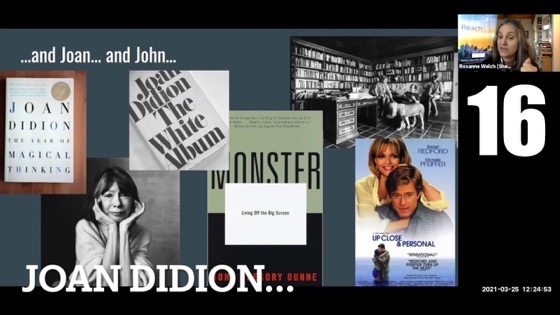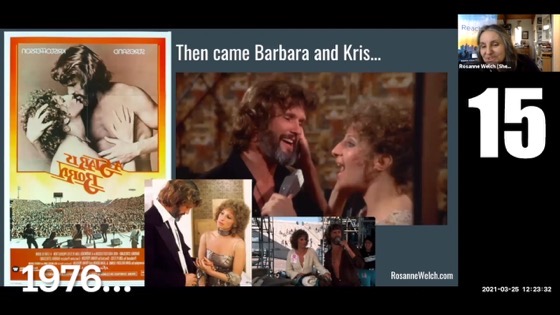Many thanks to Janice Law of the American Women Writers National Museum who invited me to give a short talk on The Women of Early TV.
I enjoyed sharing the names and careers of women like Peg Lynch, Gerturde Berg, Selma Diamond and D.C. Fontana to the members who gathered on Zoom last Wednesday morning. There are so many more I could have talked about whose names don’t appear in mainstream books about the history of television so we have to learn who they are and carry those names forward ourselves. It’s one of the missions of the Stephens College MFA in TV and Screenwriting – and has been one of my missions all my life.

Transcript:
Gertrude Berg is a woman we need to know about. We think about early television. We think about diversity. In this case, it was considered quite diverse that there would be a Jewish family on television and so she wrote The Goldbergs, one of the earliest, again, sitcoms and these are the pile of scripts behind her because this ran as well on radio and then moved into television where she portrayed herself in the show right? So that’s a beautiful other thing. Long before they were Seinfeld in any of those other comics, she became the star of the show she also wrote. This impresses me because the double work involved in that is almost hard to explain and what’s really amazing about Molly Goldberg is in the 1940s she was voted the second most admired woman in America, right after the first lady Eleanor Roosevelt. Imagine that was showing us the early power of television and how those stories can move into our lives and really be part of something. So I found that absolutely fascinating.
Many thanks to Janice Law of the American Women Writers National Museum who invited me to give a short talk on The Women of Early TV.
I enjoyed sharing the names and careers of women like Peg Lynch, Gerturde Berg, Selma Diamond and D.C. Fontana to the members who gathered on Zoom last Wednesday morning. There are so many more I could have talked about whose names don’t appear in mainstream books about the history of television so we have to learn who they are and carry those names forward ourselves. It’s one of the missions of the Stephens College MFA in TV and Screenwriting – and has been one of my missions all my life.
Watch this entire presentation
Women pioneers who created, produced or shepherded many of America’s most wildly popular, early television programs will be profiled by Dr. Rosanne Welch.
Podcast: Play in new window | Download
Subscribe: RSS
![03 Gertrude Berg From Women in Early TV for the American Women Writers National Museum [Video]](https://rosannewelch.com/wp-content/uploads/2021/12/rmw-visible-stars-early-tv-03.jpg)

![28 Art Is Very Subjective from Worry and Wonder | The Courier Thirteen Podcast [Video]](https://rosannewelch.com/wp-content/uploads/2021/12/rmw-courier-13-28.jpg)


![02 Peg Lynch from “VISIBLE STARS: Women in Early TV” for the American Women Writers National Museum [Video]](https://rosannewelch.com/wp-content/uploads/2021/12/rmw-visible-stars-early-tv-02-1200x675.jpg)

![27 Queen Charlotte from Worry and Wonder | The Courier Thirteen Podcast [Video]](https://rosannewelch.com/wp-content/uploads/2021/12/rmw-courier-13-27.jpg)




![26 Controversy Scares Broadcasters from Worry and Wonder | The Courier Thirteen Podcast [Video]](https://rosannewelch.com/wp-content/uploads/2021/12/rmw-courier-13-26.jpg)